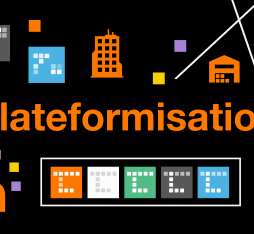Multicloud
Multicloud is a new step in the take up of the cloud by companies.
As its name suggests, this approach consists in calling on several public cloud providers or using public and private clouds together. The benefit? By not putting all its eggs in one cloud, a company can gain availability and security as it spreads the potential risks (for example in the case of a technical or network failure). What’s more, depending on its specific needs, it can take advantage of the different services offered by providers, as not all clouds are the same!
De facto, multicloud is positioning itself as an essential approach for an increasing number of organisations. According to a study carried out in May 2019 by research firm Gartner, 81 % of organisations are in fact already calling on at least two providers.
Making the move to multicloud has several benefits for businesses.
Multicloud is a guarantee of no longer being dependent upon one single provider and of benefiting from the best of each provider.
This makes it possible to complete the geographical coverage of the historical provider…
… To comply with the regulatory constraints of data location, and in particular with the GDPR…
… To optimise costs by selecting the most competitive services, provider by provider…
… And benefit from the best innovative services, for example in AI or the IoT.
Equally, multicloud makes it possible to spread risks across several providers.
This guarantees better service continuity in the case of a breakdown or cyberattack…
It also provides the possibility to rely on dynamically extensible infrastructures in order to deal with certain situations, such as a pandemic for example…
… and that of offering environments such as Infrastructure as a Service (IaaS) or Platform as a Service (PaaS), which best fit the teams’ skills or the technologies used.
The transition to multicloud can however come up against a certain number of obstacles. Despite being technically and contractually promised, reversibility and interoperability from one cloud to another are faced with the reality on the ground. The management of multiple subscriptions and the difficulty of comparing providers’ rates, which are notorious for their complexity, act as other brakes and justify turning to certified multidisciplinary teams such as those of Orange Business Services – who offers its customers, depending on their needs, its own public cloud offering – Flexible Engine – or that of a third-party platform thanks to partnerships with Amazon Web Services, Microsoft Azure or Google Cloud. Managing skills across the whole set of technologies is a major issue in order to be able to fully benefit from the services offered by the various providers. It is necessary to have a multi-skilled expertise to manage and administer an information system that has become highly distributed: security, monitoring, reporting, evolutions, etc.
Read also on Hello Future








